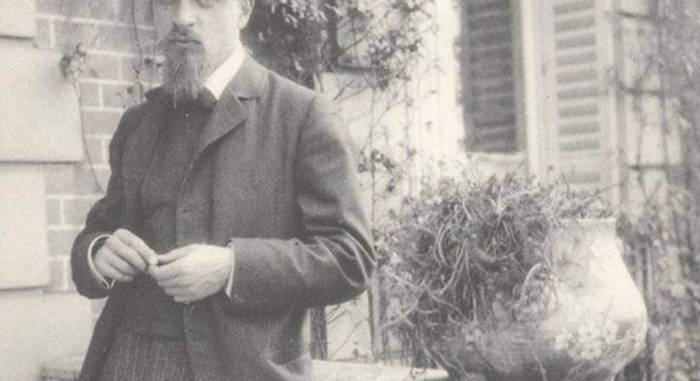Do you Think You're a good Reader? Take the Nabokov Test
Before teaching his course on European Literature at Cornell, Nabokov spoke of the qualities any good reader should have and the literary benefits that come with them.
Literature is undoubtedly one of the most important resources of what is commonly called “the civilizational process”. It has existed in several forms —oral, written, shared, individual— and in every case it has revealed itself to be an effective method to spread knowledge, an enriching form of entertainment and a means to subjective transformation. Reading is a movement of the intellect and as such it provides other ways of seeing and thinking, other possibilities for life. To read well, then, is of utmost importance. If, as Roberto Calasso asserts, the gods fled from this world to find refuge in books, then we must do what is necessary to bring them back.
In the mid-1950s, Vladimir Nabokov was a literature professor in Cornell. This season has been preserved as a series of books: a course that is known as European Literature and another on Russian Literature. These two volumes where edited afterwards and even though the writer was known for never improvising –– always having a speech prepared for the class he was about to teach or for a televised interview, he did so in one delightful class.
In Cornell, before he officially began teaching his course and talking about Stevenson, Flaubert, Jane Austen, Ulysses, The Metamorphosis and La Recherche, the author of Lolita spoke of reading. “Good readers and good writers” was the title the editors gave this introduction latter, since Nabokov described the wonders of the act of reading. As a faithful representative of the so-called “close reading”, this “curious reader” who makes an appearance ever so often in the Hispanic literature of the Golden Century, Nabokov had a very precise and clear idea about the forces that converged during literature, of all that was at play.
In this preface, among many useful ideas, there is a provocative test which the author of Lolita wanted to take in order to define whether they were good or bad readers. The quiz
Select four answers to the question what should a reader be to be a good reader:
- The reader should belong to a book club.
- The reader should identify himself or herself with the hero or heroine.
- The reader should concentrate on the social-economic angle.
- The reader should prefer a story with action and dialogue to one with none.
- The reader should have seen the book in a movie.
- The reader should be a budding author.
- The reader should have imagination.
- The reader should have memory.
- The reader should have a dictionary.
- The reader should have some artistic sense.
As Harold Bloom now, Nabokov was always a strong refractory to the theoretical approach to literature; and like Borges, he preferred hedonistic reading –– the kind that gives pleasure. That is why owning a dictionary is more important than knowing the historical context of a text. That is also why being able to remember what has been read might be more advantageous than reading with the purpose of analyzing style to replicate it later.
The qualities that Nabokov values the most might seem elemental, but is this not where the possibility of a miracle is born?
Related Articles
7 Recommendations for Organizing Your Library
For the true bibliophile, few things are more important than finding a book from within your library.
Red tea, the best antioxidant beverage on earth
Red tea is considered to be the most unusual of teas because it implies a consistently different preparation process. ––It is believed that its finding came upon surprisingly when traditional green
A brief and fascinating tour of the world's sands
To see a World in a Grain of Sand And a Heaven in a Wild Flower, Hold Infinity in the palm of your hand And Eternity in an hour. - William Blake What are we standing on? The ground beneath our feet
Strengthen your memory with rosemary oil
For thousands of years rosemary oil has been traditionally admired and used due to its many properties. In the Roman culture, for example, it was used for several purposes, among them cleansing, as
Literature as a Tool to Build Realities
Alain de Botton argues that great writers are like lenses through which we can see an infinite array of possibilities.
Mandelbrot and Fractals: Different Ways of Perceiving Space
Mathematics has always placed a greater emphasis on algebra, a “purer” version of itself, one that is more rational at least. Perhaps like in philosophy, the use of a large number knotted concepts in
Luis Buñuel’s Perfect Dry Martini
The drums of Calanda accompanied Luis Buñuel throughout his life. In his invaluable memoirs, published under the Buñuel-esque title, My Last Sigh, an entire chapter is dedicated to describing a
A Brief Manual of Skepticism, Courtesy of Carl Sagan
Whether or not you’re dedicated to science, these tips to identify fallacies apply to any form of rigorous thinking.
How to Evolve from Sadness
Rainer Maria Rilke explored the possible transformations that sadness can trigger in human beings.
Alan Watts, A Discreet And Charming Philosopher Of The Spirit
British thinker Alan Watts was one of the most accessible and entertaining Western interpreters of Oriental philosophy there have been.










